Framing the PhD project – how to connect parts to a whole in a paper-based dissertation? - 2 ECTS
Faculty |
||
| Professor Signe Vikkelsø & Professor MSO Anne Reff Pedersen | ||
Course Coordinator |
||
| Professor Signe Vikkelsø | ||
Prerequisites |
||
|
To participate, the PhD student must be conducting a PhD thesis within a social science area and preferably within the field of organization and management studies. Priority is given to CBS PhD students in the final year of their project. Each student must submit a max. 3 page outline of their PhD dissertation, specifying its constituent parts: Topic and research question, previous research/state-of-the-art, theoretical framework, method, 3-4 papers, and conclusion. Submit the three page overview by September 22 on Canvas. |
||
Aim |
||
|
A core challenge in the paper-based dissertation is to ensure that the papers are connected, e.g. that they relate to an overarching research question, supplement each other in a systematic fashion and enable a solid conclusion – without being too overlapping. The course focuses on establishing a clear and interesting narrative in the participants’ PhD dissertations by composing and writing an effective framework (”kappe”). This includes the following elements: Identifying the constituent parts of the dissertation; establishing a linkage between papers; crafting the opening of the narrative (motivating the research question and methodlogical apparatus); and formulating the “moral” of the narrative (i.e., the scientific and practical implications). The course runs as a mixture of lectures and workshops where participants give and receive feedback on the composition of PhD frameworks. |
||
Course content |
||
|
The course adopts a pragmatic approach to composing a coherent paper-based dissertation in a given research domain. It centers on the question: how can a dissertation be written to interest readers and withstand “assaults from a hostile environment” (Latours, Science in Action)? Four tools are presented: “Framing” (what is the domain(s) and approach of the dissertation?), “storyline/pattern recognition” (what is the relationship, logic structure, or golden thread across papers?), “enrolment” (how to make readers interested and minimize objections?), and “narration and temporality” (what is the type of story to tell, and how to tell it in what time and space?). The participants will employ the tools to each others’ dissertation outlines in order to develop and sharpen their coherence. |
||
Teaching style |
||
| Lectures and feedback sessions on thesis structure inviting participants to reflect upon own and each other’s thesis structures. | ||
Lecture plan |
||
|
October 4 09.00-09.30: Welcome and introduction lecture Signe Vikkelsø 09.30-10.30: Lecture: The core constituents and framing of a paper-based dissertation Signe Vikkelsø 10.30-10.45: Coffee break 10.45-12.00: Break-out session: Constituents and frames at work in your dissertations? Faculty present in each session 12.00-12.30: Lunch break 12.30-14.00: Lecture: Constructing coherence among parts (what is the storyline?) Anne Reff Pedersen 14.00-14.15: Coffee break 14.15-15.45: Break-out sessions: Patterns and storylines at work in your dissertations? Faculty present in each session 15.45-16.00: Wrap up October 5 09.00-10.30: Welcome and lecture: Enrolment of readers: who are you writing for? Signe Vikkelsø 10.30-10.45: Coffee break 10.45-12.00: Break-out session: Domains and debates at work in your dissertations? Faculty present in each session 12.00-12.30: Lunch break 12.30-14.00: Lecture: The narrative and temporal structure of writing: starting by the end Anne Reff Pedersen 14.00-14.15: Coffee break 14.15-15.45: Break-out sessions: Genres and writing style in your dissertations? Faculty present in each session 15.45-16.00: Wrap up and goodbye
|
||
Learning objectives |
||
|
||
Exam |
||
| N/A | ||
Other |
||
Start date |
||
| 04/10/2022 | ||
End date |
||
| 05/10/2022 | ||
Level |
||
| PhD | ||
ECTS |
||
| 2 | ||
Language |
||
| English | ||
Course Literature |
||
|
Murray S. Davis (1971) That's Interesting!: Towards a Phenomenology of Sociology and a Sociology of Phenomenology. Philosophy of the Social Sciences, 1(2), pp. 309-344. Richardson, L. (2000). Writing: A Method of Inquiry. In N. K. Denzin & Y. S. Lincoln (Eds.), Handbook of Qualitative Research, 2nd edition: 923-948. Sage. |
Information about the Event
Date and time Tuesday 4 October 2022 at 09:00 to Wednesday 5 October 2022 at 16:00
Registration Deadline Tuesday 4 October 2022 at 09:00
Location
Dalgas Have - Room: DH.V.0.20
Dalgas Have 15
Frederiksberg
DK-2000
 Loading
Loading



